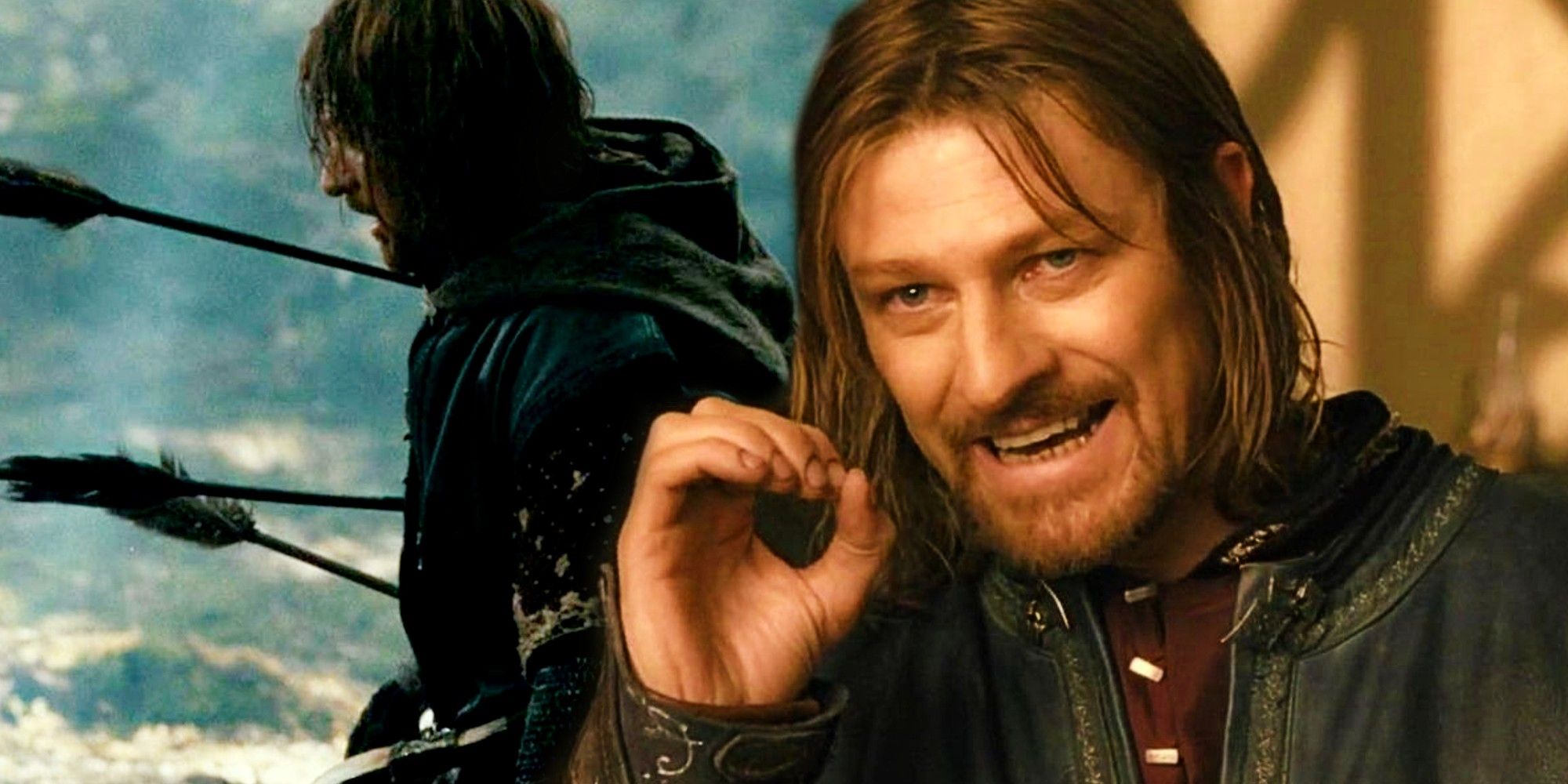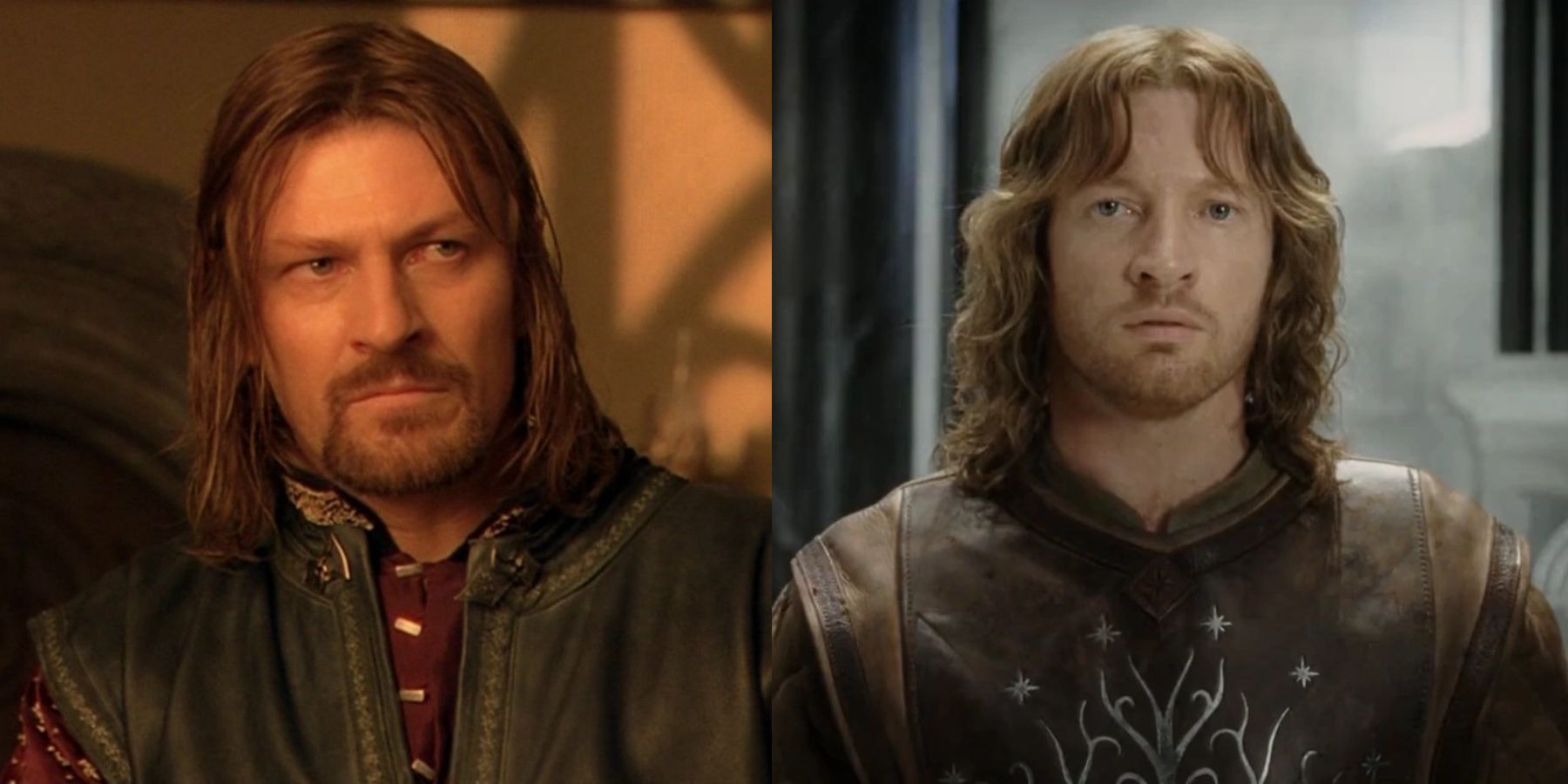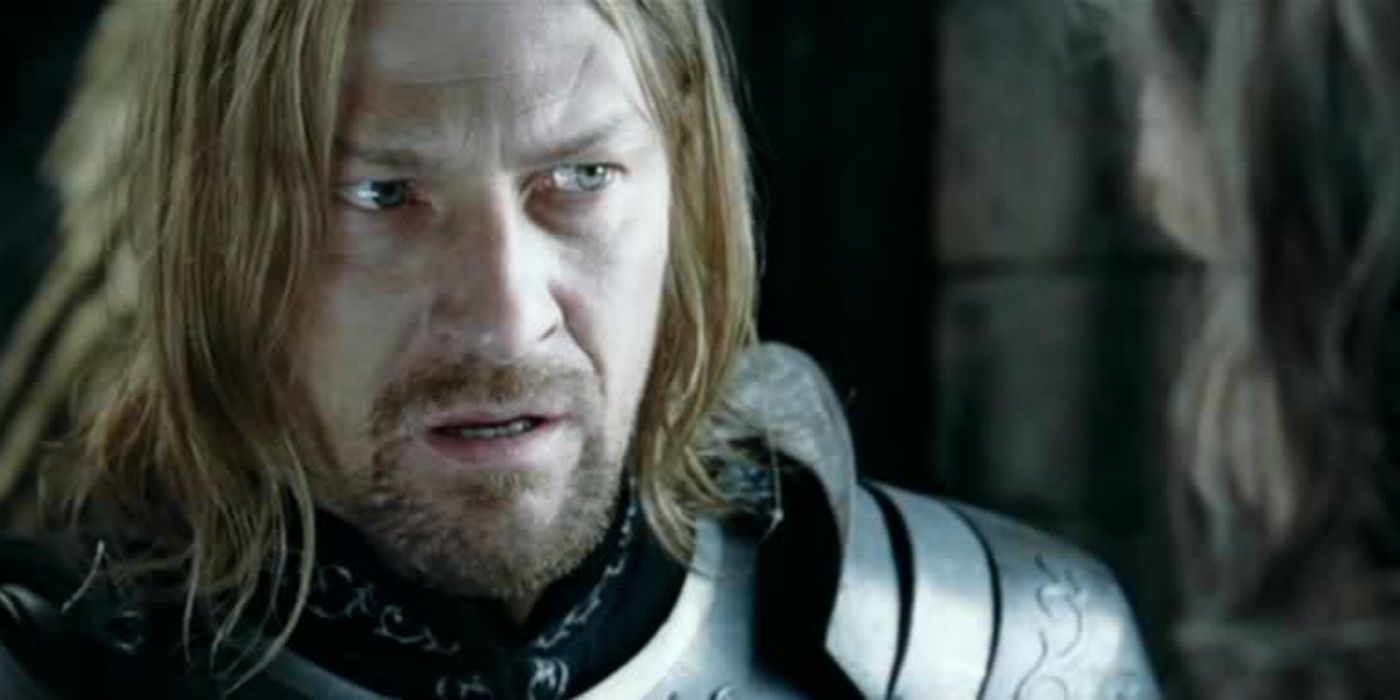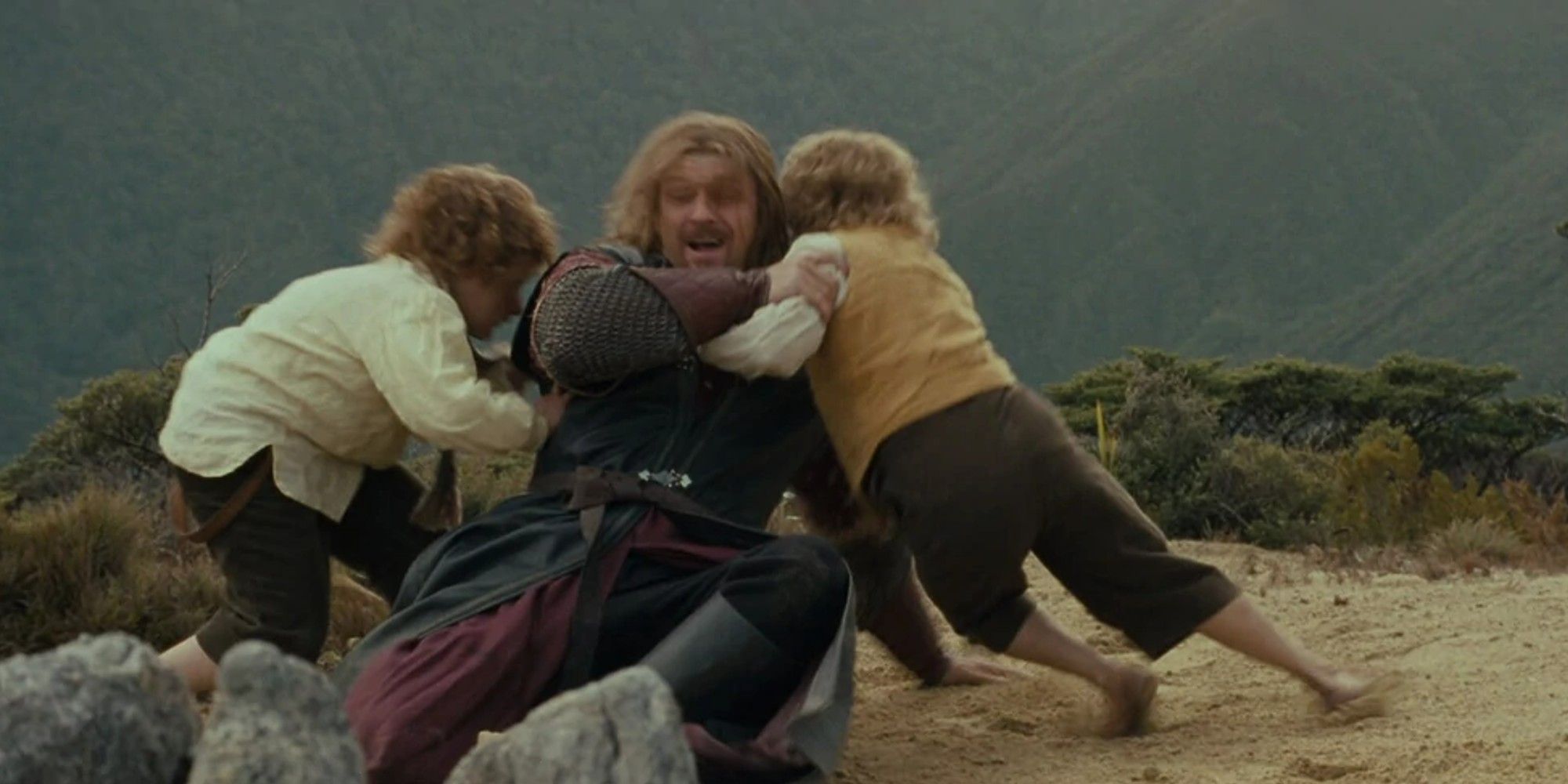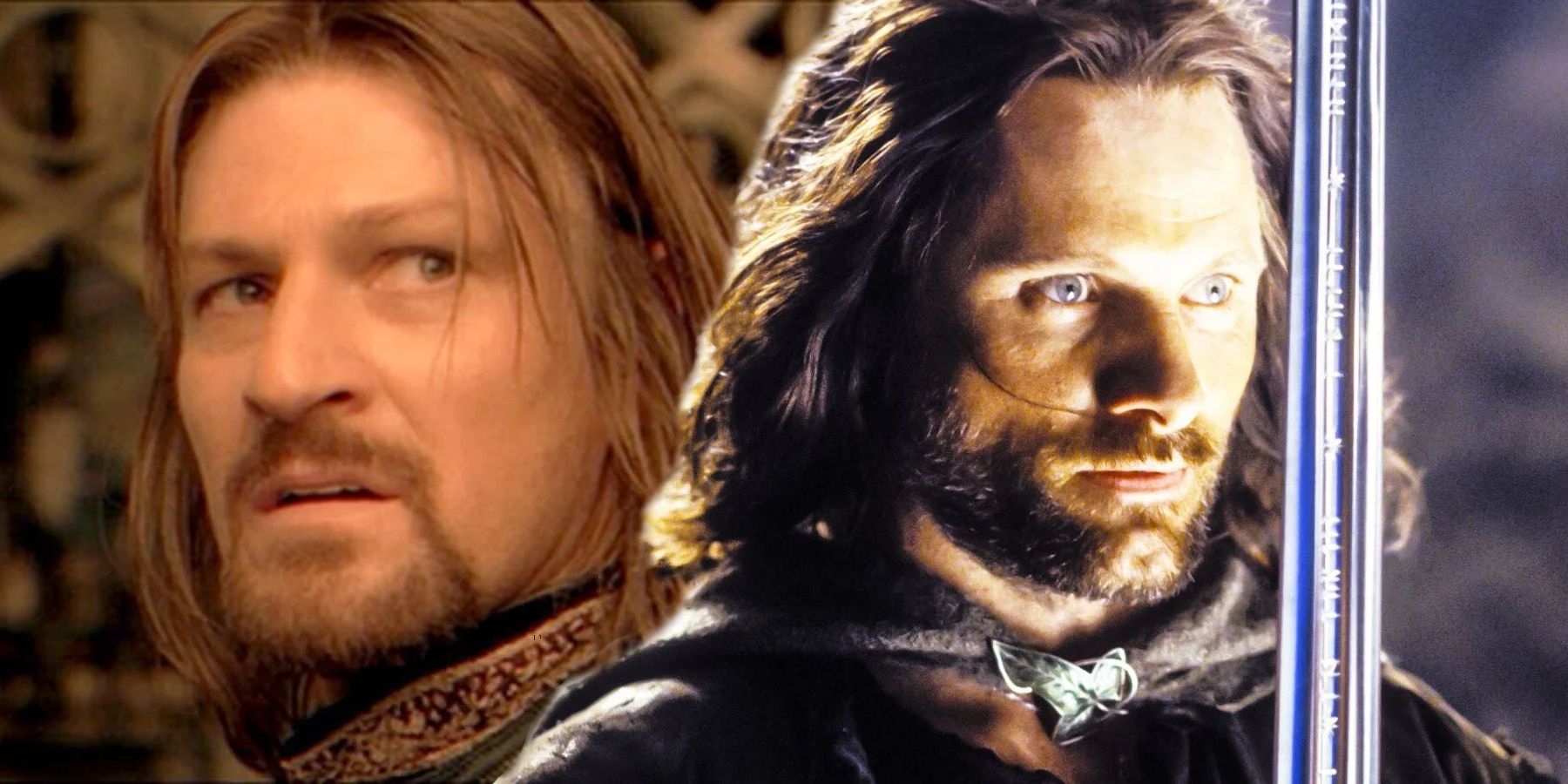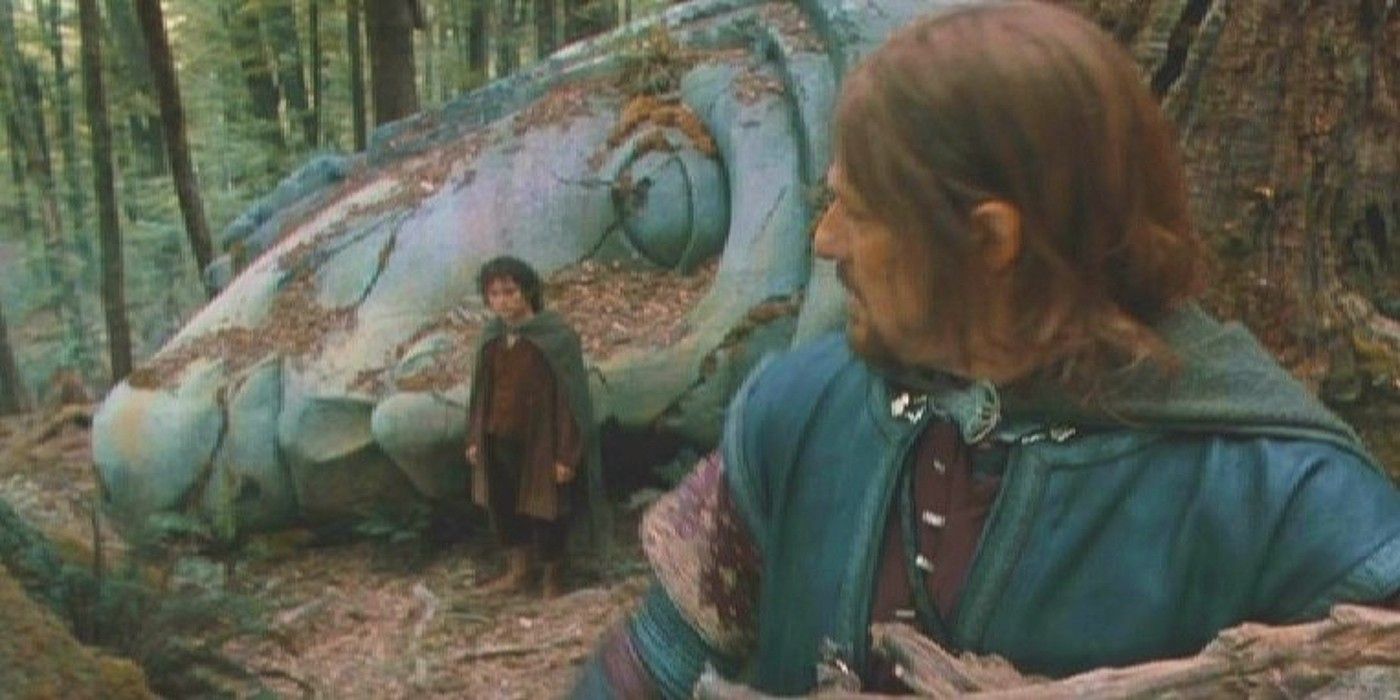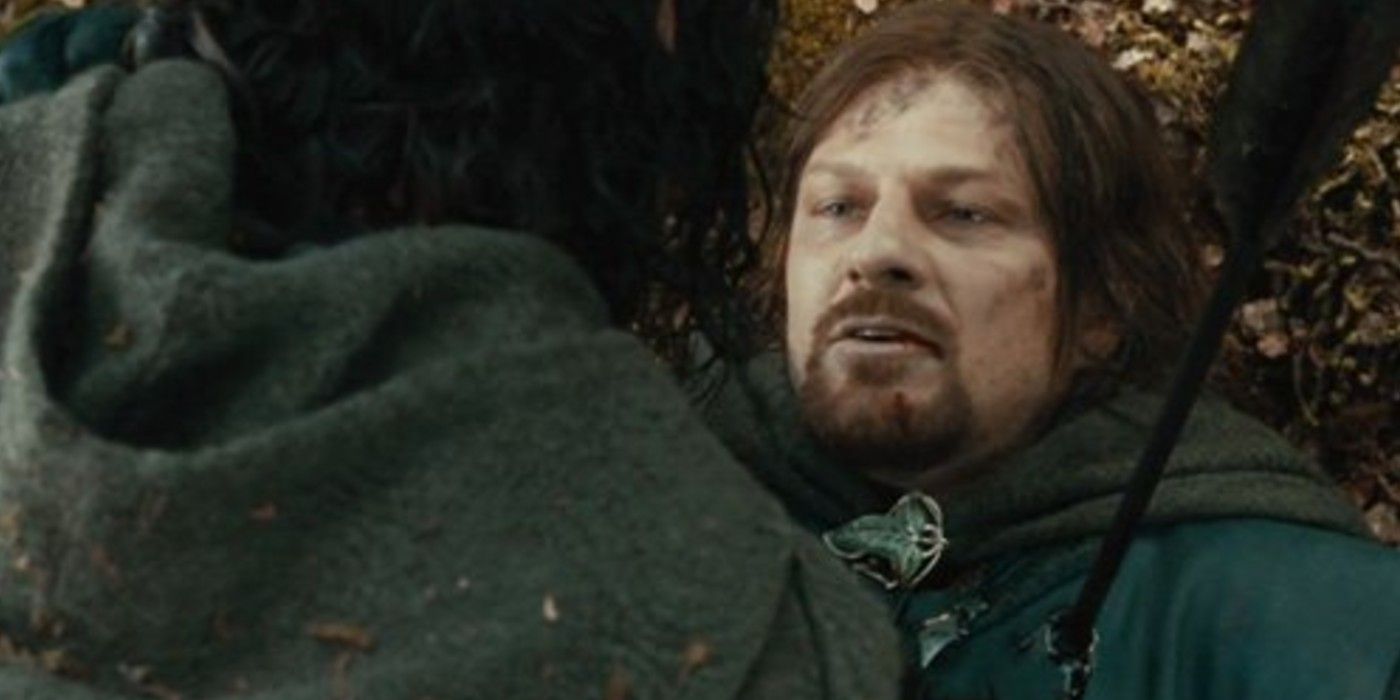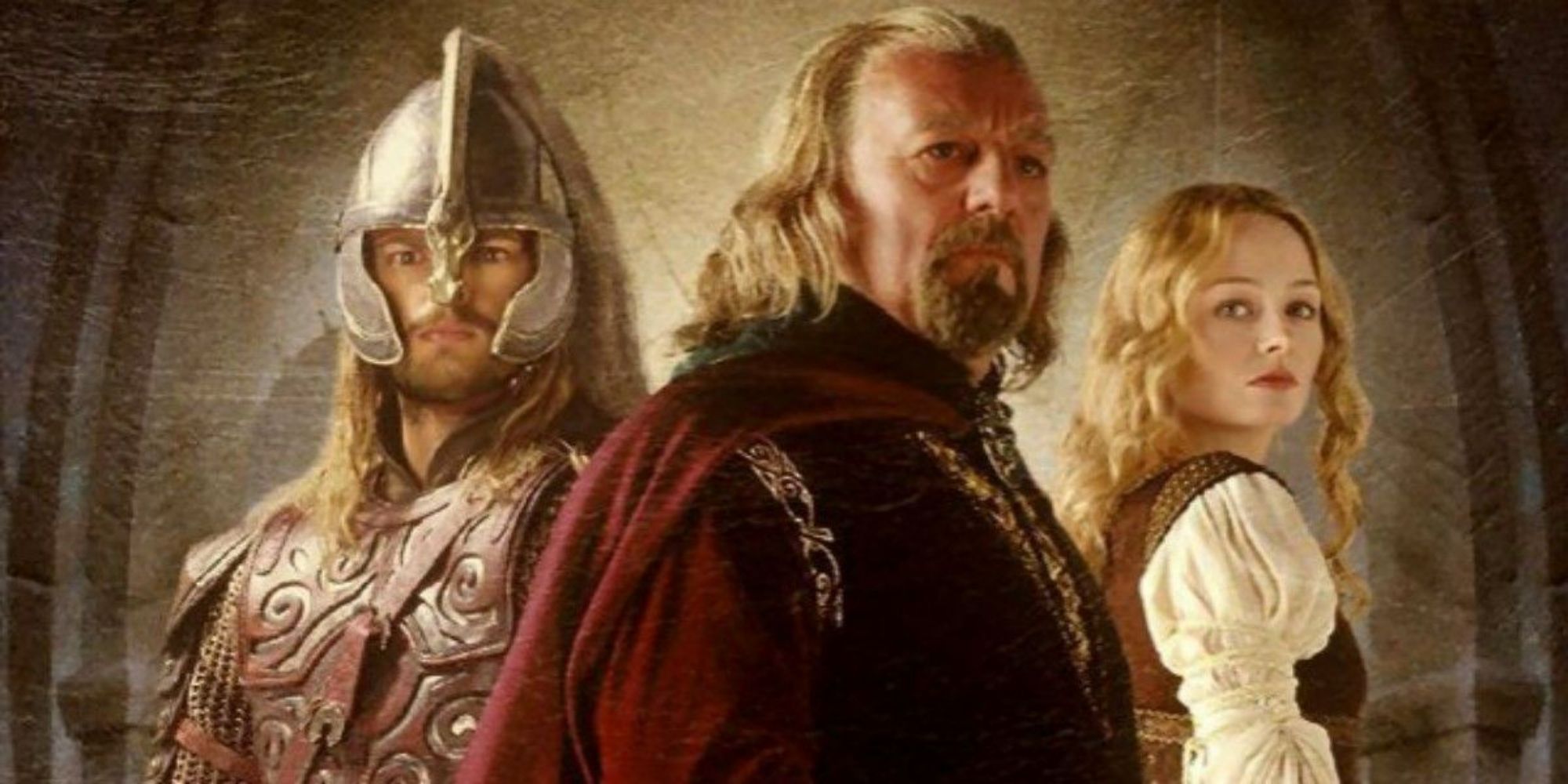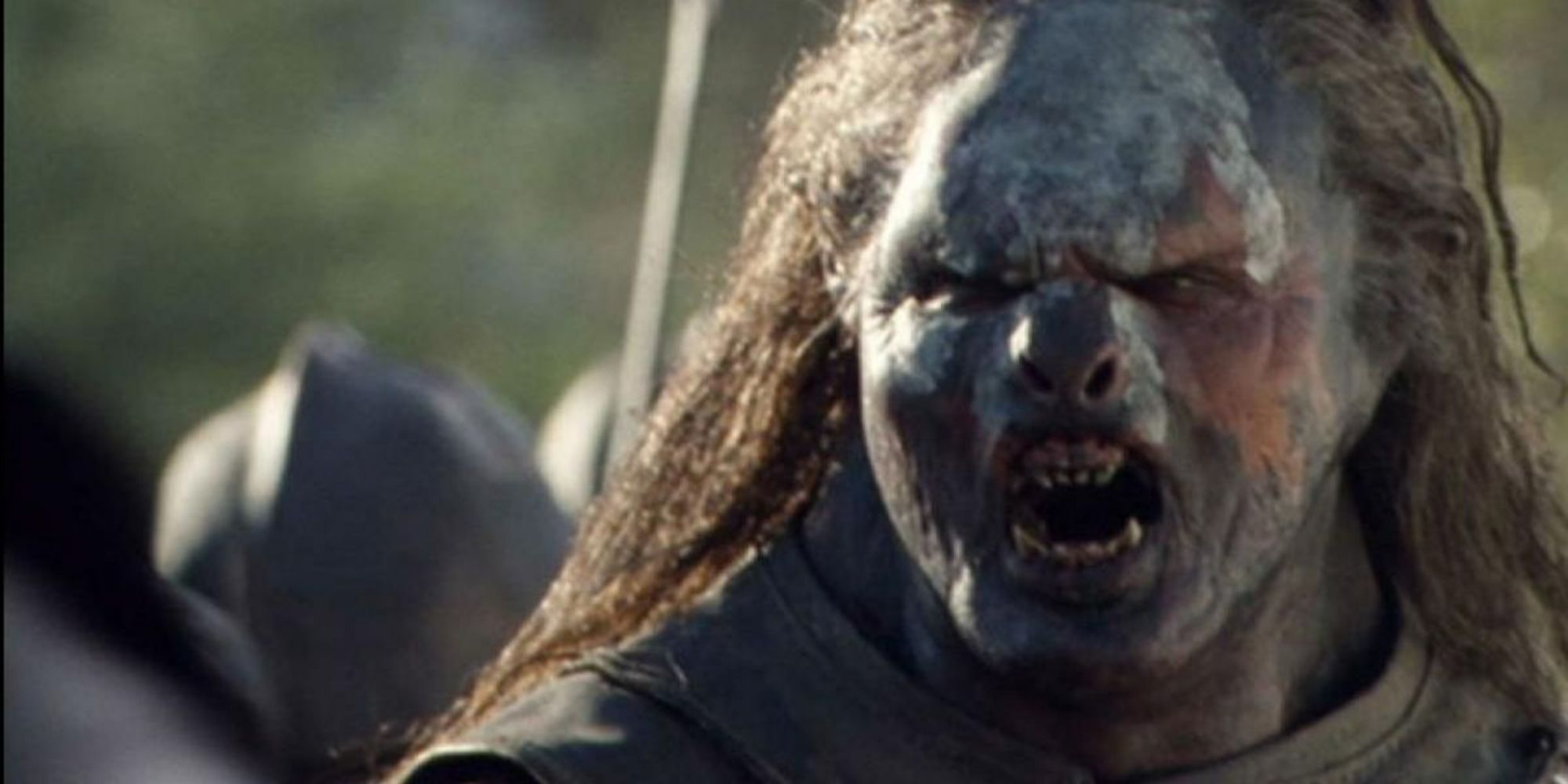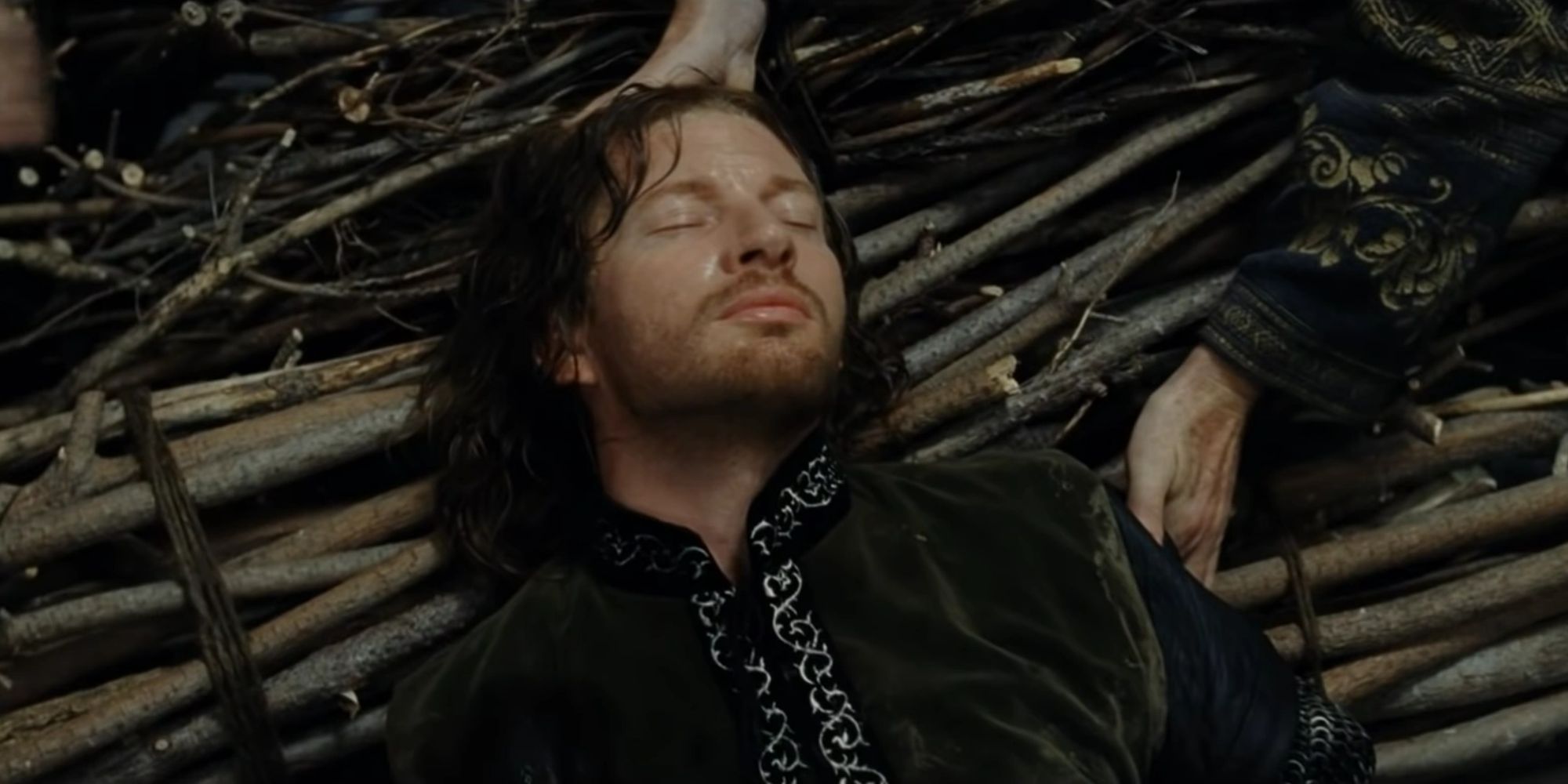Boromir’s death in the Lord of the Rings movies was tragic enough, but the character’s full story in the books makes it even more heartwrenching. The Steward heir of Gondor was an essential character in the iconic series since he demonstrated how the Ring’s power could affect men. In many ways, he paralleled Isildur, and his ultimate redemption before his death was a symbol of how his race in Middle-earth was on the mend. Still, this impact was far more substantial in the Lord of the Rings books, where Boromir’s whole story was told in more detail.
The Lord of the Rings movies introduced Boromir at the Council of Elrond, and it was immediately apparent that he would be a source of conflict within the Fellowship of the Ring. He scoffed at Aragorn’s claim to Gondor’s throne and argued that the forces of good in Middle-earth should use Sauron’s Ring to defeat their enemies. Of course, it was precisely this thought that would lead to his downfall, but Boromir’s death while saving the hobbits was his redemption. His movie arc was impactful and emotional, but the nuances of the books make it far better (and pulls tighter at the heartstrings).
10 Boromir Helped To Raise Faramir Before Lord Of The Rings
The Lord of the Rings audiences met Boromir and Faramir’s father, but their mother was never depicted (or mentioned) in the movies. She passed away when Boromir was only ten, and Faramir was five. This unexpected death had a major impact on the Steward’s family and is thought to be the reason for Denethor’s decline. Since he wasn’t the best fatherly figure, Boromir was left responsible for his beloved little brother. The two became extremely close as a result, which makes Faramir’s mourning—and his father’s cruel treatment— much more devastating.
9 Boromir Came To Rivendell Because Of A Recurring Dream
The Lord of the Rings movies make it seem as if Elrond had called the various races of Middle-earth to Rivendell, but in reality, they were all there by coincidence (or destiny). In Boromir’s case, he had set out from Minas Tirith because of a dream that had been plaguing both him and Faramir. The dream contained a prophecy that spoke of Elrond’s home in Rivendell (by the name Imladris), Isildur’s bane (the One Ring), and Hobbits—and he quickly stepped into action, believing that it would be the salvation of his home. Ultimately, this prophecy proved that it genuinely was Boromir’s destiny to be a part of the Fellowship of the Ring:
“Seek for the Sword that was broken:
In Imladris it dwells;
There shall be counsels taken
Stronger than Morgul-spells.
There shall be shown a token
That Doom is near at hand,
For Isildur’s Bane shall waken,
And the Halfling forth shall stand.”
– The Lord of the Rings: The Fellowship Of The Ring
Though Boromir didn’t know what the prophecy meant (and his father and brother could provide no further answers), he decided all he could do was set out for Rivendell to discover his destiny. It was no easy journey and took a total of 110 days to complete. This is amazing, considering he arrived in Rivendell precisely when he needed to. Sauron’s influence had left regions of Middle-earth in decay, so he often found his road dangerous or altogether impossible. He even lost his horse on a ruined bridge and was forced to carry on on foot. However, he knew that this journey was necessary for the salvation of his home, so he pressed on.
7 Boromir Didn’t Know About Hobbits Before The Council Of Elrond
Outside of Arnur (the northern region of Middle-earth where the Shire is), few know about Hobbits. As seen in The Rings of Power with the Harfoots, the quiet race had been keeping to themselves for centuries, and some areas of Middle-earth regarded them as myths. Therefore, when Boromir heard the “Halfling” part of his prophecy, he had no idea what it was talking about. Of course, that changed once he got to Rivendell, and he recognized that Hobbits would have a significant part in his story.
6 Boromir Never Opposed Aragorn In The Lord Of The Rings Books
The Lord of the Rings movies created a lot more resistance within Aragorn’s journey back to Gondor’s throne, both internally and externally. Just as the man himself was less hesitant to be king in the books, Boromir was never so antagonistic. Of course, the more dramatic character arc meant an emotional resolution when Boromir finally pledged his allegiance to Aragorn, but the fact that he had always been loyal to him in source material pulls at the heartstrings in a different way. It demonstrates how Boromir’s duty to Gondor (and its king) came before anything else.
5 Boromir Willingly Paid The Price For Attacking Frodo
In the Lord of the Rings movies, the Uruk-hai caught up with the Fellowship just after Boromir attacked Frodo and tried to take the Ring from him, but there was a little more time for the man to process what he had done in the books. In the story’s original version, after Frodo ran away, Boromir wandered for over an hour thinking about what he had done. Later, as in the movies, Boromir confessed to Aragorn that he had tried to take the Ring. However, he went on to say that he had paid the price for it. He recognized that his death was the cost of his crime and was willing to pay it.
4 Boromir’s Final Words Were Different In The Lord Of The Rings Books
Boromir’s death in the Lord of the Rings movies was very similar to that of the books. It was during the moments that followed the Uruk-hai’s attack that things began to differ. In many ways, Boromir’s final film revelation and declaration of loyalty to Aragorn was more emotional, but his last words in the books carried a different (but equally impactful) meaning. With Aragorn crouched at his side, Boromir whispered, “Farewell, Aragorn! Go to Minas Tirith and save my people! I have failed.” It again demonstrated that Boromir’s mind was always set on saving his people—a mission he passed on to Aragorn.
3 Rohan Regarded Boromir As A Legendary Warrior
Though the royal family of Rohan never mentioned knowing of Boromir in the Lord of the Rings movies, they had a lot of praise for him in the books. When Aragorn told Éomer of the Fellowships journey (and eventually disbandment), the rider of Rohan deeply lamented the news that Boromir had been killed. Though the two men had never met, Éomer explained that he had heard great things about Boromir and that he always seemed more like the heroic legend of Rohan than those of Gondor. He said, “‘Great harm is this death to Minas Tirith and to us all. That was a worthy man!”
2 Boromir Was Respected By The Uruk-Hai In Lord Of The Rings
The Rohirrim weren’t the only ones who held a surprising amount of respect for Boromir—even the Uruk-hai acknowledged the man’s skill and bravery. Throughout The Lord of the Rings, the vicious orcs or Uruk-hai often shared only insults. Everything was “scum,” and they killed with very little ceremony. However, it took an army of Uruk-hai to take Boromir down, and he was left with corpses piled all around him. This led Uglúk the Uruk-hai to call Boromir “the great warrior,” which showed how even though the man of Gondor had died, he had done it with style.
1 By Saving Pippin, Boromir Saved Faramir In Return Of The King
Aragorn was devastated by Boromir’s death, but later in the Lord of the Rings books, he told Gandalf that he was glad that Merry and Pippin had joined the Fellowship since it was because of Boromir’s determination to save them that he had managed to earn redemption for his sins against Frodo. By giving his life for them, he proved that the Ring didn’t wholly control him, but it did far more than just that. Though Boromir couldn’t have known it, Faramir’s life would depend on Pippin in Return of the King. Even though the hobbits were still taken, his efforts weren’t without positive consequences—and Faramir reaped the benefits of his brother’s sacrifice.

